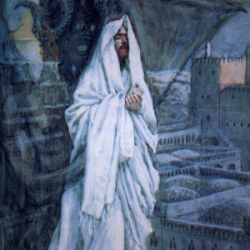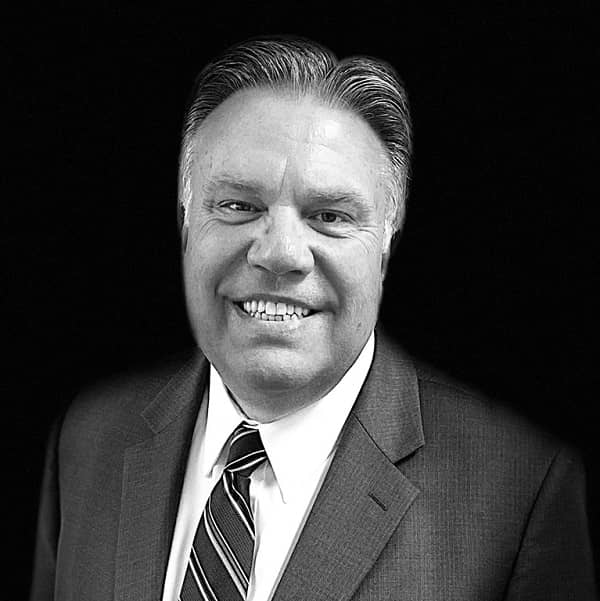
Standing up and firm for what is sacred to our Christianity is not limited to Sunday, nor is it finished when the Sabbath ends. And discomfort and risks are often involved, sometimes complicated and intense.
Unexpected Crises
Ryan Rotela was not anticipating one of those uncomfortable or risky encounters as he sat in his intercultural communications class as a junior at Florida Atlantic University. The instructor told the students to write the name Jesus on a paper and to reflect on it briefly. Then he told them to put the paper on the floor and stand up. Ryan complied. The next instruction was to stomp on the paper with the Savior's name.
This Ryan could not do. He laid the paper on his desk and let the instructor know this assignment was deeply offensive to him. The instructor ignored Ryan and his feelings. Ryan told me later,
I didn't decide to stand up for Jesus when I was in that classroom. I decided much earlier. That's why it was so natural when the moment came. I was just living a commitment I had made earlier.
A more difficult decision was whether to report the incident. This decision was made when another student came to Ryan after class and thanked him for what he had done. Ryan really did not want to cause trouble for the teacher. But realizing how comforted he felt to know he was not alone in his reaction to the assignment, he thought of other Christian students in his class who needed to know they were not alone. And he thought of all the future students who should be spared this experience.
Unexpected Consequences
When Ryan later reported the incident to the instructor's superior, he was shocked to be suspended from the university for refusing to participate in the assignment. He was charged with violating the student code of conduct. Leaders of the university brought academic charges against him.
But publicity reversed these consequences. When the situation was reported on local and national news, the university's director of media relations issued an apology for this "insensitive and hurtful" incident. All academic charges were removed from Ryan's records, and no further action was taken against him. The Governor of the State of Florida affirmed in one of the articles, "It took great conviction and bravery to stand up and say what he was asked to do was wrong and went against what he believed in."
Fellow 7-day Christians also supported Ryan. Local churches came together and held demonstrations.
When I asked Ryan what he thought was ahead for him, he replied, "I'm going to keep trying to stand up for my morals in a world where that is getting harder and harder. . . . Everyone is going to have to decide what he or she stands for." When I asked him if he felt protected during these experiences, he replied, "Yes. When you stand up for what's right, you always have God on your side."
Challenges That Extend and Expand
Ryan's challenges in Florida took place in 2013. The behavior of the teacher and the compliance of all but one of the students might have seemed shocking in the media and to the public at that time. In the 2020s, public practices in behavior and language are increasing the difficulties for 7-day Christians.
Ugly and obscene language and gestures, violence (mob and otherwise), abusive behavior, tragic relationships, and disgusting "humor" and entertainment are among the hazards Christians and other religious persons must struggle through daily.
People in all sectors—from leaders /lawmakers of nations, to medical personnel, to professional athletes, to entertainers, to billionaire CEOs, to office workers, to artists, to retail workers, and even some school teachers—seem locked into patterns as un-Christian and un-anything-else- positive as they can possibly be.
Russell M. Nelson, leader of a worldwide Christian Church, wrote of an ideal world in which "men and women would respect their neighbors and the beliefs held sacred by them. No longer would ethnic jokes and cultural slurs be acceptable." Like Ryan, we must avoid lowering ourselves to behavior that demeans individuals, groups, nationalities, ethnicities, or any other people in the world God has created.
We should never in any way denigrate or otherwise show disrespect for a person, place, or symbol that is sacred to others. A 7-day Christian should support and lead others in showing reverence.
Christian Responsibility
Ugliness against sacred persons, places, and symbols seems increasingly rampant as violence brings death and serious injuries to worshipers worldwide in places that should be sacred and safe, including, among others, mosques and synagogues as well as Christian churches. Russell M. Nelson explained our Christian responsibility:
Love our fellow human beings throughout the world. Whether they be Jewish, Islamic, or fellow Christians, whether Hindu, Buddhist or other, we can live together with mutual admiration and respect, without forsaking our [own] religious convictions. Things we have in common are greater than our differences.
We must stand firm in our own sacred beliefs and in our respect for and defense of the sacred beliefs of others.
Jesus Christ gave two hostile cultures a lasting example of these principles, as He was traveling through Samaria. Sending his disciples into a nearby city to buy food, he waited by Jacob's well, a cultural landmark, for someone he knew would come. As the woman was dipping her pot into water, He asked her for a drink. Recognizing Him as Jewish, she was surprised that he would ask her—a woman and a Samaritan—for that service.
After they had spoken about the "living water" and He had revealed things He knew about her life, she came to recognize Him as a prophet, and he identified himself as the messiah called Christ, of whom she had heard. Jesus realized that the surrounding fields were figuratively white, "ready to harvest," and he remained as the woman brought many to hear Him. The fields were so white, that the Savior remained extra days teaching the Samaritan people in this area. Though people of these geographic/ethnic groups were traditionally bitter enemies, Christ taught them of things that were, indeed, "things . . . in common greater than [their] differences."
Christians Working Together
Jeffrey R. Holland, an educator and Christian leader, a former university president, understanding the challenges young Christians were facing, affirmed, “Your Father in heaven knows your name and knows your circumstance. He hears your prayers. He knows your hopes and dreams, including your fears and frustrations. And He knows what you can become through faith in Him.”
With like concern for becoming, two Christian educational institutions were concerned about the number of people of all religions and cultures worldwide who were unable to access postsecondary-level education. These group founded the Pathways program, which their website promises to offer "spiritually based degrees completely online at an affordable price." They offer associate and bachelor's degrees from their institutions that students can work on and complete anywhere in the world, with scholarships up to 50% of tuition, awarded according to need.
Annually Pathways enrolls 57,489 students, including individuals from all 50 states in the US and 188 other countries. Students are connected with mentors who can offer academic and mental/emotional support and encouragement every step of the way.
Our Savior and his doctrine are sacred. And His children are sacred. What could matter more?
2/22/2022 11:51:04 PM





